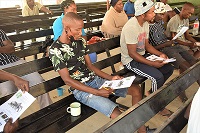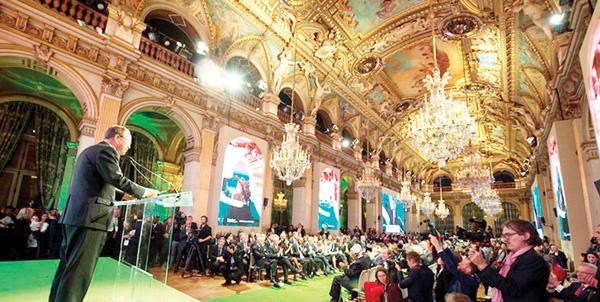
FirstRand Namibia Foundation contributes to peaceful co-existence between humans and elephants

RMB, though the FirstRand Namibia Foundation in 2021 donated N$60,000 to the PEACE Project, to fund seven community seminars to educate more than 140 people, and conduct field patrols by vehicle with the participants to monitor the safety of the free-roaming desert-dwelling elephants, the financier said in a statement this week.
“On behalf of the PEACE Project, the rural communities that live among the desert-adapted elephants and the elephants themselves, we wish to thank RMB Namibia for their support. Your grant was a light at the end of the tunnel for the awareness-raising and conflict mitigating through the People and Elephants Amicably Co-existing (PEACE) Project Namibia,”, said Rachel Harris, Managing Director of Elephant Human Relations Aid (EHRA).
The elephants that have been impacted by the PEACE seminars include the Ugab West resident elephants (21 elephants), the Huab elephants (45 elephants) and the Khorixas elephants (47 elephants).
EHRA is recognised as an important organisation bringing practical solutions to conservation in the Erongo and Kunene Region.
PEACE Project Manager, Shannon Diener, added that there were several great accomplishments in the area where PEACE has worked to date.
“These include a change of heart from a conservancy leader who was anti-elephant and who was part of the “no-elephants” group. We have not experienced any negative complaints from community members, and we have not had any unfortunate incidents for either elephants or humans in the communal areas. When elephants arrive in villages where we have held seminars, people inform one another of the whereabouts of the elephants, and they take the necessary precautions to stay safe.”
Rehabeam Auala from RMB Namibia expressed his delight with the many projects that EHRA is busy with.
“We are aware of an Environmental Education Centre which is in its final stages of completion. This is a first of its kind in the Kunene Region. Further, the environmental education curriculum for visiting school learners has been completed and the solar water pump project is underway for both commercial and communal farmers. In addition to this, the corridor project is underway, which is a project studying migratory routes of elephants between communal and commercial farms and working on finding sustainable ways to reduce infrastructural damage on commercial farms without hindering the movement of elephants. We thank EHRA for their wonderful work towards paving the way for peaceful co-existence between humans and elephants,” Auala concluded.










































